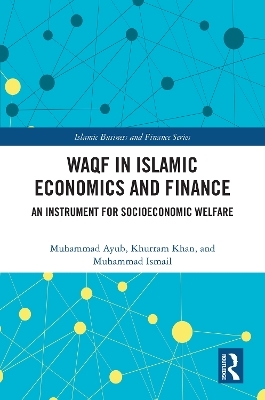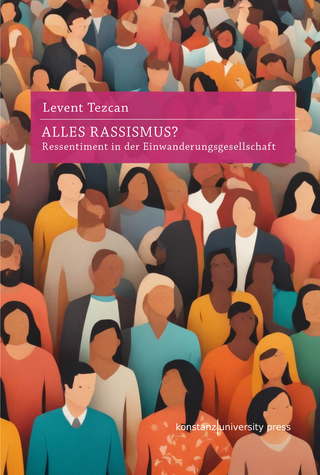
Waqf in Islamic Economics and Finance
Routledge (Verlag)
978-1-032-76205-0 (ISBN)
- Lieferbar (Termin unbekannt)
- Versandkostenfrei innerhalb Deutschlands
- Auch auf Rechnung
- Verfügbarkeit in der Filiale vor Ort prüfen
- Artikel merken
Waqf is emerging globally as a distinctive institution, serving as a vital bridge between societal and economic needs, and resource allocation. Waqfs functioning in some parts of the world, of a variety of assets such as cash, stocks, securities, intellectual property rights, and other financial instruments by individual, institutional, and corporate wāqifs, are paving the way for financial and social inclusion. This book explains how the system of awqāf leads to welfare in society by facilitating financial and social intermediation.
It describes waqf in accessible terms, focusing on how it helps people, communities, and nations, and how it can help make societies equitable, peaceful, efficient, and more prosperous. It comprises eight key themes, including a brief overview of the historical role of waqf in various periods in Muslim societies in socioeconomic sectors; the evolutionary aspects of waqf as an institution; the role of waqf in promoting entrepreneurship; the role of awqāf system in an economy by facilitating financial and social intermediation; potential options for using waqf as financial intermediation; an overview of the management and regulation of waqf entities; the organizational and legal framework for the institution of waqf; and key findings and recommendations for realizing the capacity of waqf in the pursuit of socioeconomic welfare. Specifically, the book takes Pakistan as a case study.
This research-oriented book is tailored to readers interested in understanding the fundamental concepts of Islamic finance and social welfare, without requiring a background in the discipline. It caters to academics, researchers, policymakers, and those keen on exploring the transformative potential of waqf to achieve societal welfare and shared economic growth.
Muhammad Ayub is Professor of Islamic Economics and Finance, Riphah Center of Islamic Business, Riphah International University, Islamabad, Pakistan. Khurram Khan is Professor of Management and Finance at the the Faculty of Management Sciences, Riphah International University, Islamabad, Pakistan. Muhammad Ismail is Assistant Professor of Finance and Islamic Finance, Iqra National University, Peshawar, Pakistan.
1. Introduction and historical perspective of Waqf 2. The evolution of Waqf as an Institution for Socio-Economic Growth 3. Promoting entrepreneurship through the system of Awqāf 4. Waqf for accelerating socio-economic development 5. Waqf Based Financial Inter-mediation, FinTech and crowdfunding for realizing the potential of Islamic Social Finance 6. Management and Governance of Awqāf as Social Finance Institutions 7. Waqf Based Legal and Organizational Frameworks 8. Realizing the potential of Waqf for shared growth and sustainable socio-economic development
| Erscheinungsdatum | 10.10.2024 |
|---|---|
| Reihe/Serie | Islamic Business and Finance Series |
| Zusatzinfo | 4 Tables, black and white; 18 Line drawings, black and white; 18 Illustrations, black and white |
| Verlagsort | London |
| Sprache | englisch |
| Maße | 156 x 234 mm |
| Gewicht | 590 g |
| Themenwelt | Sozialwissenschaften ► Soziologie ► Spezielle Soziologien |
| Wirtschaft ► Allgemeines / Lexika | |
| Wirtschaft ► Betriebswirtschaft / Management ► Unternehmensführung / Management | |
| Wirtschaft ► Volkswirtschaftslehre ► Makroökonomie | |
| ISBN-10 | 1-032-76205-5 / 1032762055 |
| ISBN-13 | 978-1-032-76205-0 / 9781032762050 |
| Zustand | Neuware |
| Informationen gemäß Produktsicherheitsverordnung (GPSR) | |
| Haben Sie eine Frage zum Produkt? |
aus dem Bereich


